READY TO GET STARTED?
REQUEST A FREE ESTIMATE
Fill out the form below or call (888) 466-7849 for a free, no-obligation estimate.

Ghost ants are a common nuisance in Florida, especially during warm, humid months. Small but persistent, they often invade homes in search of food and moisture. Their pale, translucent bodies and dark heads make them hard to spot, and their ability to form multiple colonies indoors makes them tough to eliminate. Knowing where they hide and how to prevent them is key to keeping these tiny pests out.
Ghost ants are drawn to moisture and sweets, often showing up in kitchens and bathrooms. Here’s how to spot an infestation:
If you spot any of these signs, act quickly to prevent the problem from spreading.
Ghost ants are masters of staying out of sight, which makes them especially challenging to deal with. They can squeeze into incredibly tight spaces and establish nests in various hidden areas. Here are some of their favorite hiding spots:
Baseboards provide a discreet entry point as well as a cozy nesting area. These spots are particularly appealing in homes with moisture issues.
Leaky pipes and damp cabinets create ideal conditions for these ants. Inspect these areas frequently, as they’re a common hotspot for ant activity.
Ghost ants often nest within the moist soil of indoor plants, so be sure to check for unusual movement around your greenery.
Small spaces like electrical outlets or wall voids are perfect for these ants to build nests and expand their colonies unnoticed.
Ghost ants are drawn to food sources, and kitchen appliances often provide hidden crumbs and moisture. Check behind refrigerators, under toasters, and inside cabinets for signs of activity.
Ghost ants are persistent, but with a few proactive steps, you can keep them out.
Because ghost ants form multiple colonies, a persistent problem may need professional treatment.
Ghost ants may be tiny, but the inconvenience they bring is anything but small. By understanding the signs of an infestation and taking proactive steps to prevent them, you can keep your home ant-free and comfortable year-round. Contact a trusted pest control professional for expert advice and effective treatments to reclaim your home today!

Attics in Pompano Beach, Florida, may offer hidden shelter for pests like rodents, termites, and bats. The area’s warm climate and humid conditions create the perfect environment for infestations. Quiet, dark, and full of food sources like wood and insulation, attics quickly become a pest haven. But homeowners can take smart steps to keep attic pests from infesting!
Pests are naturally drawn to attics for several reasons:
The good news? With proactive measures, you can stop attic pests from settling in.
Schedule routine attic checks for signs of pests, such as droppings, nests, or gnawed materials. Professionals can perform thorough inspections to catch what you might miss — and recommend preventative steps like attic insulation services, which help block pests while improving energy efficiency.
Prevent access by sealing cracks, damaged vents, and other potential entry points. Use caulk, wire mesh, or steel wool to block openings. Regularly inspect your roof, chimney, and attic for damage.
Attic pests thrive in damp and cluttered spaces. Address these issues by:
Take steps outside your home to reduce the attraction of pests:
If pests invade, opt for environmentally healthy solutions. Natural repellents like peppermint and citrus sprays, humane traps, and diatomaceous earth are effective and toxin-free.
An attic infestation can lead to serious issues. Rodents chew electrical wiring, increasing fire risks, while termites and carpenter ants damage structural integrity. Pest droppings also pose health risks, and severe infestations can be costly to resolve. Prevention protects your home, health, and wallet.
Keeping pests out of your attic is achievable. With regular maintenance, sealed entry points, and eco-friendly pest control, your attic can remain a pest-free zone. Don’t wait for pests to settle in; act now to protect your home and family.
Need help? Contact a trusted pest control professional to ensure your attic stays off-limits to unwanted visitors. Give us a call or click the button below to get started with your FREE quote.

Living in South Florida means sunshine, beaches, and unfortunately—pests. The region’s warm, humid climate creates the perfect environment for insects and wildlife to thrive year-round. Whether it’s ants in your kitchen, termites in your walls, or mosquitoes in your backyard, pests can become a serious problem for homeowners and business owners alike. So when an infestation strikes, your first question is likely, “How do I choose the best pest control near me?“
In this blog, we’ll explore what makes a pest control company stand out, the types of pests commonly found in South Florida, treatment methods to expect, and the benefits of hiring a professional. By the end, you’ll know exactly what to look for—and what to avoid—when choosing a local pest exterminator to keep your property pest free.
Pest control is not just about killing bugs—it’s about protecting your home or business, your health, and your peace of mind. An ineffective or careless pest control approach can lead to recurring infestations, property damage, and even exposure to harmful chemicals.
Choosing the best pest control near you ensures that you’re getting expert knowledge, safe and targeted treatment options, and long-lasting results. Whether you’re dealing with a current pest problem or want to prevent one before it starts, the right pest control company can make all the difference.
With so many pest control companies offering their services in South Florida, it’s important to know how to evaluate your options. Here’s what to consider when choosing a provider:
Look for companies that have years of experience serving your local area. Read reviews on Google, Yelp, or the Better Business Bureau to see how past clients rate their services. A strong reputation is a reliable indicator of quality work.
Always ensure that the pest control company is fully licensed and insured in the state of Florida. This not only protects you but also guarantees that their technicians are trained and certified in safe application practices.
The best companies don’t just spray and leave—they offer a variety of solutions to address different pest issues. Whether you’re dealing with rodents, roaches, termites, or wildlife, a full-service provider should have specialized treatment plans for each type of pest.
If you’re concerned about your family, pets, or the environment, choose a company that offers eco-friendly pest control options. Many pest control services now incorporate green treatments that are just as effective as traditional chemicals but safer for your home and surroundings.
When searching for the “best pest control near me,” prioritize companies that are locally owned and operated. A local pest exterminator will be more familiar with the seasonal pest patterns and common pest species in South Florida, allowing them to tailor their treatments more effectively.
Top pest control companies stand behind their work. Ask about warranties, satisfaction guarantees, and follow-up services. Clear communication, responsive customer service, and transparency in pricing are all signs of a trustworthy provider.
South Florida is home to a wide range of common pests that can invade both homes and businesses. A reputable pest control company should be equipped to handle them all. Here are a few of the most frequent offenders:
From tiny sugar ants to invasive carpenter ants, these pests are persistent and often difficult to eliminate without professional help.
Subterranean and drywood termites cause significant structural damage if not caught early. Annual inspections and preventive treatments are essential.
Roaches are not only disgusting—they carry bacteria and can worsen allergies. German and American cockroaches are the most common in South Florida.
Known for spreading diseases like West Nile and Zika virus, mosquitoes are a serious outdoor nuisance in Florida’s climate.
Mice and rats can chew through wires, contaminate food, and multiply quickly. Integrated rodent control is a must in urban and suburban settings.
Wasps, hornets, fire ants, and venomous spiders like the black widow can pose health risks, especially to children and pets.
These blood-sucking pests are notoriously hard to eliminate. Professional heat treatments and thorough inspections are often required.
Top-tier pest control services offer a variety of treatment plans to target the specific pests in and around your property. These methods can be customized based on your needs, whether you’re dealing with a one-time issue or need year-round protection.
The best pest control companies use Integrated Pest Management, a science-based approach that combines prevention, monitoring, and control. IPM minimizes pesticide use and focuses on long-term solutions, making it ideal for environmentally conscious customers.
Many South Florida companies now offer green pest control options made with natural or low-toxicity ingredients. These eco-friendly products are especially useful in homes with children, pets, or sensitive individuals.
Bait stations are commonly used for ants, cockroaches, and termites. They attract pests to a food source laced with a slow-acting poison that’s taken back to the colony for widespread elimination.
Used for both indoor and outdoor applications, barrier sprays create a protective zone around your property to keep pests out.
For severe infestations—especially of drywood termites—whole-structure fumigation may be necessary. This is a more invasive option, typically requiring vacating the property for a few days.
To keep pests from coming back, many companies offer exclusion services that seal up cracks, gaps, and other entry points.
Routine pest control services ensure that pests don’t return. Many companies offer monthly, bi-monthly, or quarterly plans depending on your needs.
While DIY traps and sprays may work for a while, they often only address the surface of a much larger issue. Here are a few reasons why hiring a professional pest control company is the smart choice:
Not all pests are created equal. A trained technician can correctly identify the type of infestation and choose the most effective treatment.
Professionals don’t just treat the problem—they get to the root of it. This ensures that infestations don’t reoccur a few weeks later.
From using child- and pet-safe products to proper handling of hazardous chemicals, professional services reduce health risks to your family or employees.
While DIY solutions may seem cheaper initially, recurring infestations can cost you more in the long run. Professional pest control saves you time, stress, and money.
Knowing your home or business is being protected by experts gives you the confidence to focus on what matters most.
Whether you’re a homeowner dealing with ants in the kitchen or a business owner concerned about rodents in your restaurant, the best pest control near you should deliver:
Thorough inspections of your property
Customized treatment plans based on your needs
Transparent pricing and clear explanations
Regular maintenance options to stay pest free
Friendly, professional service every time
Look for a pest control provider that understands the unique needs of both residential and commercial properties in South Florida.
Finding the best pest control near you isn’t just about hiring someone with a sprayer—it’s about partnering with a company that truly cares about protecting your property. Look for a local pest exterminator with a strong reputation, a wide range of services, eco-friendly options, and a dedication to customer satisfaction.
Don’t wait until pests take over your home or business. Whether you’re battling a current infestation or want to prevent one in the future, a proactive approach with the right company will keep you pest free all year long.
Let us help you reclaim your space from unwanted pests. We proudly serve homes and businesses across South Florida with safe, effective, and affordable pest control solutions.
Call or click the link below to request your FREE quote today and discover why we’re the trusted choice for pest control in your neighborhood.

Living in Pompano Beach means enjoying warm weather year-round, but it also comes with dealing with seasonal pests. The city’s tropical climate creates perfect conditions for pests like mosquitoes, termites, ants, and rodents. Here’s how to protect your home effectively, regardless of the season, with pest control near me.
Pompano Beach’s humid weather and lush surroundings make it an ideal breeding ground for pests. Each season brings its own challenges:
Knowing these patterns can help you take proactive measures to stay pest-free.
Professional pest control services can provide tailored solutions for Pompano Beach pests, using targeted, eco-friendly treatments to address infestations effectively.
Consistency is key to keeping your home comfortable and pest-free. By combining preventative measures with professional expertise from pest control near me, you can tackle seasonal pests and enjoy peace of mind in every season. Reach out to a local Pompano Beach pest control expert today for customized solutions and a pest-free home!
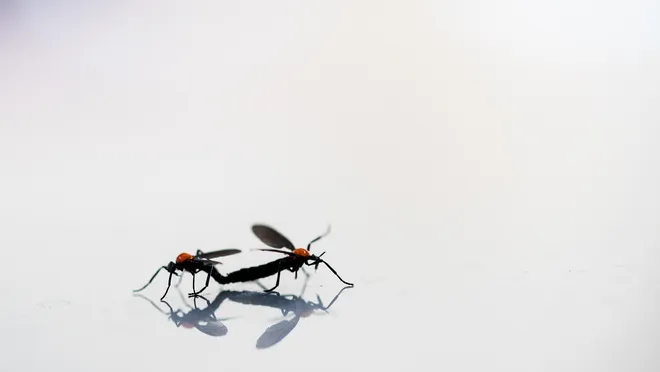
When Valentine’s Day rolls around, the presence of love is usually a good thing. But in Florida, there’s one kind of “love” you might wish to avoid—love bugs. These harmless but annoying pests thrive in Florida’s warm, humid weather, often causing widespread inconvenience for homeowners and drivers alike. If you’ve encountered love bugs and are searching for solutions without harming the environment, we’ve got you covered.
This blog will explore eco-friendly, non-toxic options to control love bugs while protecting your home—and the planet.
Before we jump into solutions, let’s quickly understand who we’re dealing with. Love bugs, scientifically known as Plecia nearctica, are small, black insects that are attracted to light and warmth. You’ll often find them in pairs (hence the name “love bugs”) during their mating season, which occurs twice a year—spring and late summer.
While they don’t sting or bite, these flying pests are notorious for swarming homes, getting stuck on vehicles, and even damaging car paint with their acidic secretions. Left unchecked, love bugs can turn into a nuisance that’s especially hard to ignore during their peak seasons in Florida.
Here’s how you can prevent and control love bugs without toxic chemicals, ensuring your Valentine’s Day—and every day after—is pest-free.
Prevention is the first step in green pest control. Love bugs are not strong fliers, which means they can easily enter your home through cracks, poorly sealed doors, and windows.
Love bugs are attracted to light—particularly white and yellow lights—making your porch or outdoor areas a prime target.
Say goodbye to harmful sprays, and hello to healthier alternatives.
Love bugs may be fond of light and heat, but they have plants they dislike too! Incorporating natural deterrents into your landscaping is an excellent way to prevent infestations while beautifying your garden.
If swarms have already invaded your outdoor space, you can use homemade traps to catch them effectively without resorting to toxic pesticides.
Fill a shallow dish with water and add a few drops of dish soap. Place it near a light source outdoors. Love bugs will flock to the light and become trapped in the soapy water.
For larger areas, consider hanging a sticky card or non-toxic adhesive trap.
Using eco-conscious pest control methods is more than just a practical choice—it reflects a commitment to sustainability, protecting the environment for future generations. Florida’s unique ecosystem is home to a wealth of wildlife, pollinators, and beneficial species that chemical pesticides can harm. Taking a green approach ensures that you’re targeting only the bugs you want to remove, leaving everything else undisturbed.
Sometimes, love bugs can be particularly persistent, especially during their mating season. If your DIY efforts aren’t enough, consider working with professional pest control companies that specialize in environmentally friendly solutions. Green pest control experts can assess your space, offer targeted interventions, and help maintain long-term pest-free environments—all while keeping harmful chemicals far away from your home.
It’s time to stop letting love bugs wreak havoc on your Florida home. With the green pest control strategies shared above and a local pest control expert near you, you can tackle these harmless but pesky invaders while keeping your commitment to environmental conservation intact. Whether you’re creating a citrus spray, rethinking your outdoor lighting, or sealing up your windows, every small step makes a big difference in keeping pests out and your home healthy.
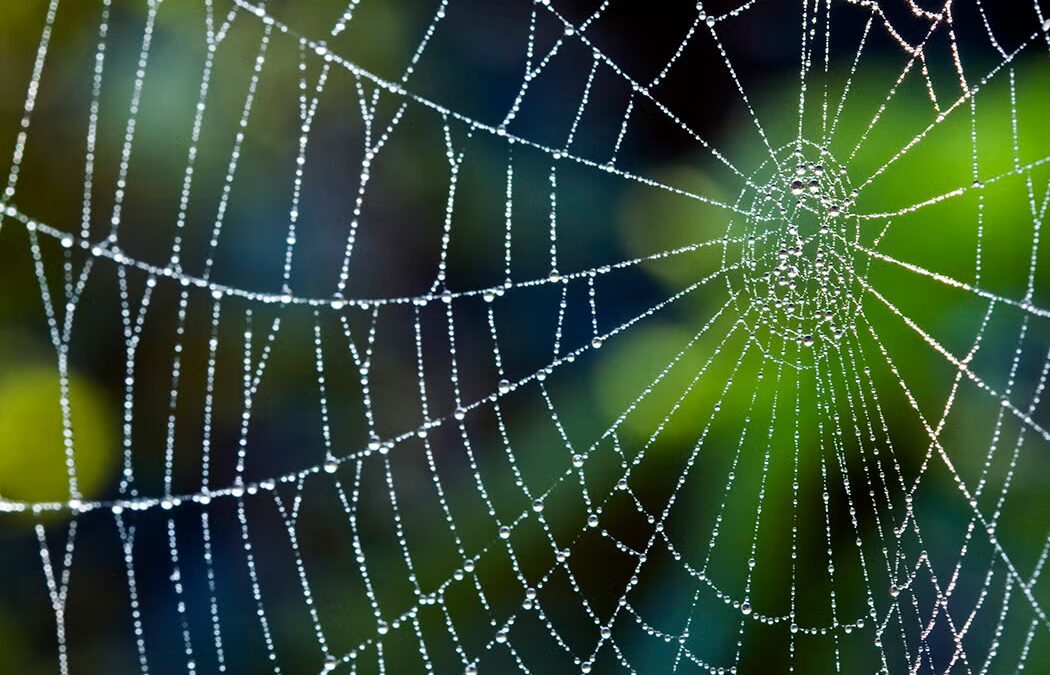
Living in Florida means enjoying the state’s lush ecosystems and warm climate—but it also means sharing your space with some unwelcome eight-legged visitors. While most spiders are harmless and even beneficial by controlling insect populations, others can pose serious risks if not properly identified and managed. If you’ve discovered a spider in your home or garden, this guide will help you recognize some of the most common spiders in Florida and give you the tools to handle them without causing any harm to you or them.
Spiders are nature’s pest controllers, reducing the need for chemical pesticides by preying on insects like flies and mosquitoes. However, not all spiders are friendly neighbors. Venomous species like the Brown Recluse and Black Widow can pose health risks to humans, which is why proper identification is essential. Knowing whether you can coexist or need professional help ensures that you take the right action.
For those focused on eco-friendly practices, understanding which spiders are harmless can allow you to protect beneficial species while maintaining a healthy environment around your home.
If you’re an environmentally conscious homeowner, there are several ways to manage spider populations while keeping your space pest free and sustainable:
Before rushing to remove every spider, remember their ecological benefits:
By allowing harmless species to thrive in and around your home, you’re supporting a balanced ecosystem that benefits both your environment and your family.
Living in Florida means sharing your space with spiders, but understanding which common spiders in Florida are beneficial and which are harmful will help you manage them responsibly. If you find yourself dealing with venomous spiders, don’t hesitate to contact a professional pest control service. Always prioritize eco-friendly methods for a pest-free home and a healthier local environment.
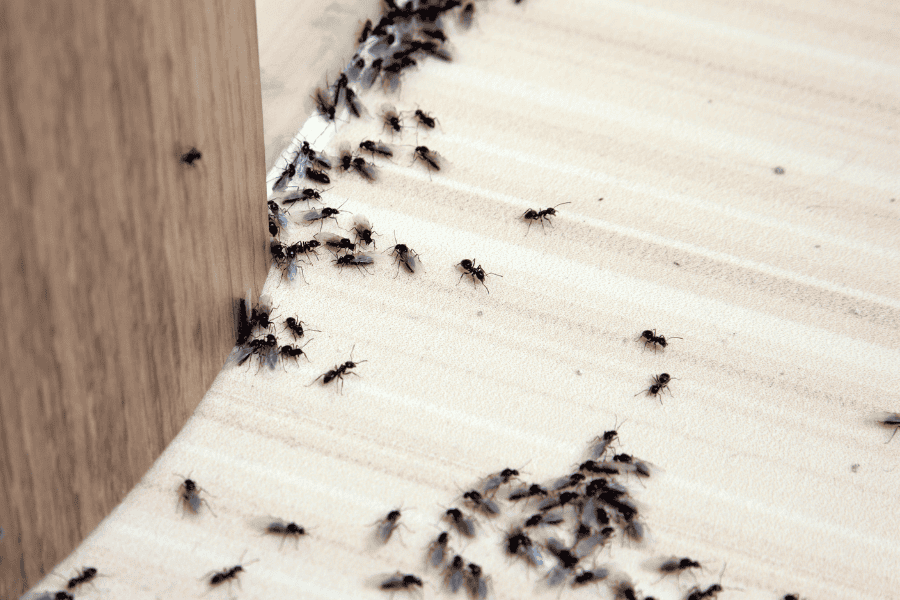
Ants are small, but they can cause big frustrations in your Miami home. Whether it’s Argentine ants marching through your kitchen or fire ants invading your yard, Miami’s warm, humid climate makes the city a prime destination for these pests. Traditional pest control methods often involve harmful chemicals, but eco-friendly ant control alternatives provide effective solutions that are not harmful for your home, health, and the environment.
Here’s how Miami residents can keep ants at bay with natural, green pest control methods that work.
Ants are always on the lookout for food, water, and shelter. Miami’s year-round warm weather, combined with the rainy season, creates the perfect environment for ants to thrive. They’re often attracted to crumbs, leaks, or even the smallest cracks in your home’s exterior.
Understanding which ant species you’re dealing with is key to effective pest control. Here are some common ants in Miami:
Using natural substances to repel ants is a great first step to keeping them out of your home:
Eco-friendly baits are a great way to target the colony itself. Mix sugar and boric acid into a paste and place it near ant trails. Worker ants will carry it back to the colony, slowly eradicating the infestation.
Diatomaceous earth is a natural powder that can be sprinkled around your Miami home. It dehydrates ants and works effectively in places like baseboards and entryways.
Ants are attracted to crumbs and food residue. Ensure your Miami home is spotless by:
Fix leaking pipes and faucets in your Miami home and dry up moisture in kitchens and bathrooms. Ants are always on the lookout for water sources and removing them will discourage them from entering.
Ants can sneak into your home through the smallest gaps. Be sure to:
Miami’s tropical environment provides a perfect place for ants to thrive. Here’s how to keep them out:
Certain plants can naturally repel ants while adding beauty to your home. Consider growing:
Miami’s warm climate makes ant infestations a common issue, but eco-friendly pest control solutions provide a greener way to protect your home. By using natural deterrents, sealing entry points, and focusing on prevention, you can keep your Miami home ant-free without relying on harmful chemicals. If you’re ready for a green pest control plan, contact a local pest control company for a free estimate.
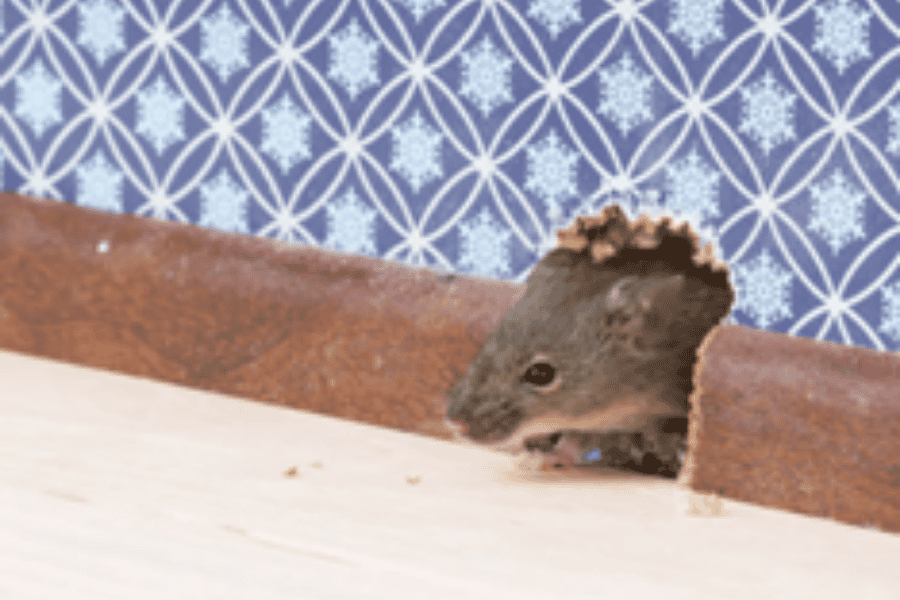
Rodents can cause serious damage to both your home and your health. If you live in Broward County, Florida, and want to protect your home from these pests, this guide will help you understand how to deal with rodent infestations effectively while keeping your living space safe.
This post will cover the types of rodents common in the area, why they’re such a problem, and the most effective ways to handle infestations. By the end, you’ll be equipped with practical solutions for dealing with rodents in your home.
Florida’s warm, year-round climate is an ideal environment for rodents like rats and mice, which thrive in urban areas and can cause significant structural damage. Common rodents in Broward include Norway and roof rats, both of which are known to spread diseases and damage insulation, wiring, and wood.
While managing a rodent infestation can be challenging, there are a number of effective ways to deal with it, from preventive measures to active control strategies.
The first step in controlling rodents is preventing them from entering your home in the first place. Inspect your home for gaps around doors, windows, and utility lines. Use durable materials like steel wool, copper mesh, or caulking to seal off potential entry points. Regularly check attics and crawl spaces for signs of rodent activity.
Traps and bait are some of the most common methods for controlling rodent populations. While traditional snap traps are effective, there are also more humane options available. Live traps, for instance, allow you to capture and release rodents away from your property. For bait, consider using alternatives to toxic chemicals, such as non-poisonous bait stations that are safe for pets and children.
Certain smells are known to deter rodents. Some natural repellents, like peppermint oil, can be used to create a barrier around entry points or areas where you’ve spotted rodent activity. Other deterrents include cayenne pepper and vinegar-water sprays.
Prevention is always better than dealing with an infestation. Here’s how you can minimize the risk of rodents in Broward County:
Dealing with rodent infestations quickly is essential to prevent long-term damage to your home and health. Rodents are not only a nuisance, but they can also spread diseases like leptospirosis, hantavirus, and salmonella. Taking steps to secure your home and eliminate food sources for rodents will make your living environment safer for you and your family.
By implementing these practical rodent control strategies, you can maintain a pest-free home and avoid the structural damage and health risks associated with rodent infestations in Broward County. Contact a pest control company near you today to get started.
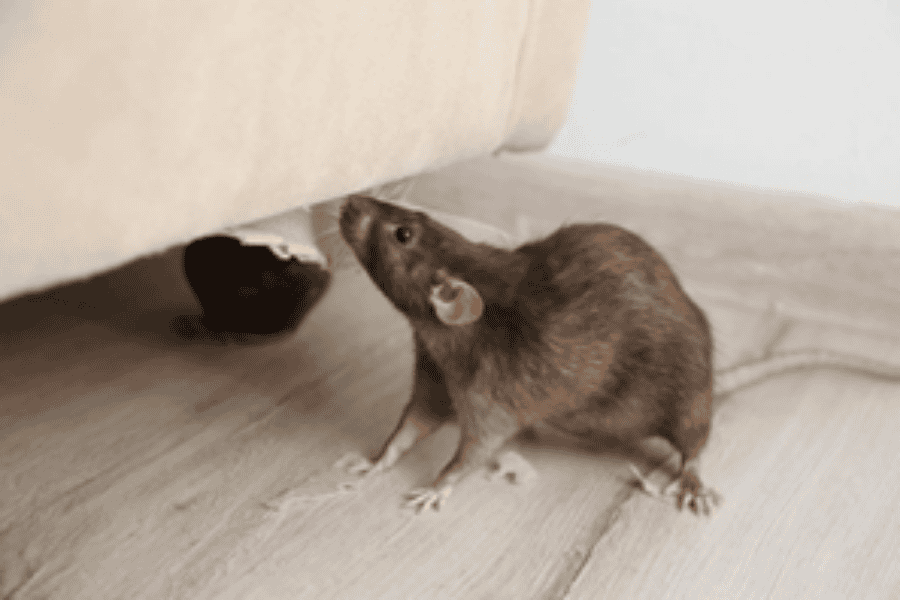
Winter brings cozy nights and festive moments, but for Pompano homeowners, it also signals the season when rodents like rats and mice seek shelter indoors. These uninvited guests can cause damage and spread health risks, but with the right measures, you can keep them out of your home. Here’s a guide to preventing rodent infestations this winter.
As temperatures drop, rodents look for warm spaces to nest. Here’s why they invade homes in winter:
Taking proactive measures can help protect your home from these winter invaders.
Keep an eye out for these common signs of a rodent invasion:
If you spot these signs, take action quickly to prevent further damage.
Rodents can fit through tiny gaps, so be diligent about sealing them:
Remove potential food and water sources:
A clean, well-organized environment makes your home less inviting to rodents.
There are a variety of traps to deal with rodent infestations:
If you’re uncomfortable setting traps, reach out to a pest control service for assistance.
A tidy yard reduces access points to your home:
A well-maintained yard makes it harder for rodents to gain entry.
If DIY solutions aren’t enough, consider professional rodent control services. Experts can provide:
Rodent-proofing your home doesn’t have to be difficult. By sealing entry points, setting traps, and maintaining your yard, you can ensure your home stays rodent-free this winter. For those seeking professional help, there are trusted pest control services ready to assist with comprehensive inspections and lasting solutions.